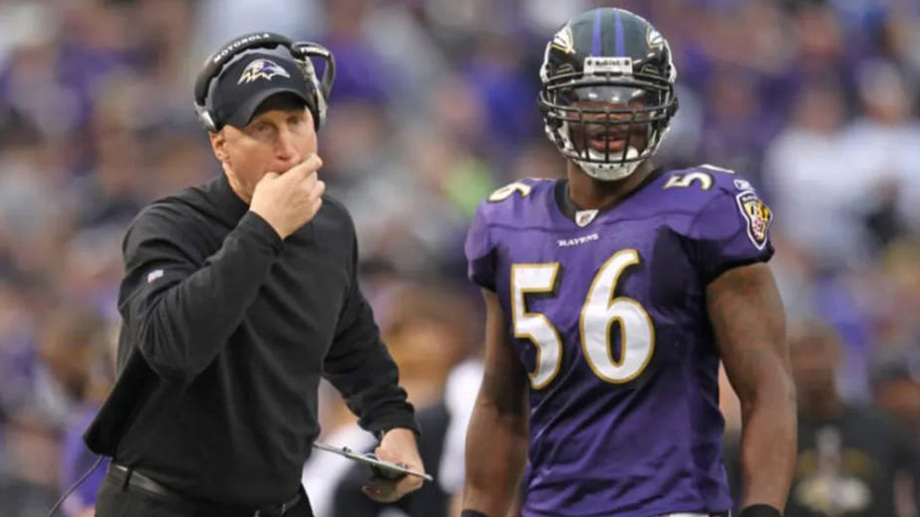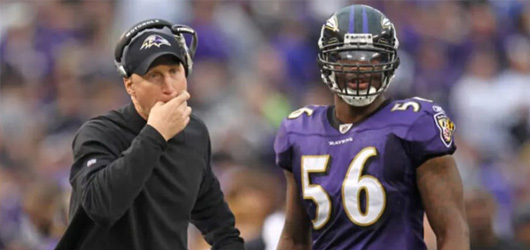Coaching: At Work as on the Field
In my 7 years in the NFL, I was exposed to some remarkable coaches. Here are the lessons I learned in that time and apply to my business coaching.

A coach, by definition, is someone who not only imparts intensive training through instruction and demonstration but also shapes team strategy. However, genuine coaches transcend these actions. Anyone can provide instructions, demonstrations, and directions, but a true coach possesses the ability to inspire others to not only embrace but also apply these directives. This phenomenon is what we term "buy-in," and the success of a robust program pivots on these two words. Can leaders or coaches effectively secure the commitment of their team members? And more importantly, how do they achieve this buy-in?
Before I assumed the role of Vice President of Business Coaching at Performance Scoring, I accumulated valuable experiences: four years at Southeast Missouri State, five years with the Baltimore Ravens, one year with the Kansas City Chiefs, and another with the Dallas Cowboys. These experiences exposed me to remarkable coaches. Over time, I've realized that most remarkable leaders were initially exceptional followers. They comprehend and respect the roles played by all individuals, from the apex of the program to its base. In 2006, Coach Tony Samuel took over as the head coach at Southeast Missouri State. During my interaction with him, I observed his adeptness at active listening, skillful questioning, and granting a degree of autonomy for decision-making. As a coach, he demonstrated genuine regard for others, gradually fostering trust within his team. He entrusted his coaching staff with their responsibilities and abstained from excessive oversight. This manifestation of respect empowered his team to excel in their respective domains.
Reflect on this: Can you identify ways to delegate more decision-making authority? How could you enhance your listening capabilities? Accomplished coaches and leaders embody these qualities while consistently motivating their colleagues to attain organizational objectives.
I've realized that most remarkable leaders were initially exceptional followers.
The outstanding coaches I've had the privilege to know personally not only preached their philosophies but also lived them, both within and outside the confines of the workplace. Personally, I've found it easier to follow someone whose actions aligned visibly with their beliefs. During my tenure with the Baltimore Ravens, I received coaching and mentorship from Coach Jerry Rosburg. Every facet of Coach Rosburg exemplified the "Play like a Raven" ethos. His stride, demeanor, attitude—all resonated with his message, demonstrating that he wholeheartedly practiced what he preached. His commitment was unwavering and evident to the team. He was the embodiment of his philosophy.
In addition, exceptional coaches possess the astuteness to position team members optimally. During my time with the Baltimore Ravens, Coach John Harbaugh approached me about transitioning from linebacker to tight end. Recognizing my skill set and catching abilities, and considering the thin roster at tight end, Coach Harbaugh orchestrated this shift. Having been a receiver in high school, the transition was seamless for me, enhancing my grasp of my original defensive role as well. Coach Harbaugh was adept at leveraging his resources.
Other notable examples of philosophy-driven coaches include Bill Belichick, Nick Saban, and my personal mentor, Andy Reid. They all share an extraordinary knack for placing the right players in the right positions, enabling success irrespective of the name on the jersey.
Triumph of a team hinges on the coach's capacity to secure buy-in for their philosophy and strategically position team members to leverage their strengths. The success or failure of any program is contingent on this very notion.
I adopt the same philosophy for every leadership role I undertake—be it my position as VP of Coaching at Performance Scoring, coaching in sports, fatherhood, or any other capacity. I recognize that the triumph of a team hinges on the coach's capacity to secure buy-in for their philosophy and strategically position team members to leverage their strengths. This principle is pivotal in coaching, arguably forming its bedrock. The success or failure of any program is contingent on this very notion. As leaders, we must hold ourselves accountable, embody our teachings, and strategically position our team members to succeed.
By Edgar Jones


